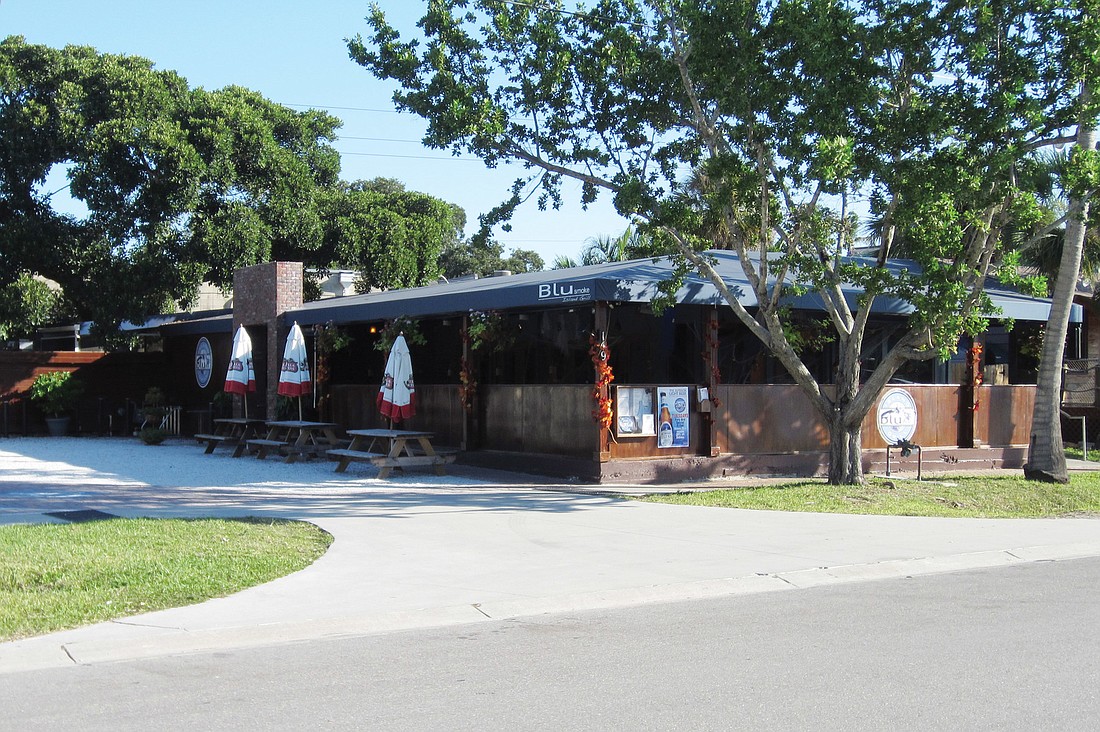- April 15, 2024
-
-
Loading

Loading

A U.S. District Court judge in Tampa has sided with Village property owner Chris Brown’s contention that his third lawsuit against Sarasota County belongs in the 12th Judicial Circuit Court, where it was filed.
U.S. District Judge Susan C. Bucklew issued her ruling Jan. 17, in response to a motion filed in November by Brown’s Sarasota attorney, Morgan Bentley, of Bentley and Bruning.
The Sarasota County Attorney’s Office was successful in October in moving the lawsuit to U.S. District Court, saying that that was the appropriate venue, because Brown had charged in the lawsuit that the county had violated his Fifth and 14th Amendment rights.
The lawsuit alleges the county singled Brown out in raising the 2011 parking assessments on three of his Village properties, while county staff lowered the taxes for 74 other Village properties in the Key’s Parking Improvement District.
Filed Oct. 4 in the 12th Judicial Circuit Court, the lawsuit says the 2011 parking assessment for Blu Smoke on Avenida Messina, now Blu Que Island Grill, went up from $138.25 in 2010 to $2,059.65 in 2011, an increase of almost 1,500%.
The assessments for The Hub Baja Grill and The Cottage rose from a total of $3,351.41 in 2010 to $6,382.95 in 2011, a hike of almost 100%, the lawsuit says.
Brown is seeking an admission from the county that its selective enforcement of the Village parking ordinance violated his constitutional guarantee of equal protection under the law. He also contends that the county, “without any basis and on multiple occasions,” as Bucklew’s order states, “reinterpreted the parking district ordinance to restrict (his) business.”
In a Nov. 7 motion seeking a remand of the case to Circuit Court, Bentley wrote that the county “has taken an oddly untenable and inconsistent position in this matter.”
He contended the county had the case removed to U.S. District Court on the basis of one section of the U.S. Civil Rights Act of 1871. However, Bentley wrote, the county “then devoted an entire section of its Motion to Dismiss … to the notion that the action has no business in federal court,” because the state court “has exclusive jurisdiction of the claims” relative to that section of the Civil Rights Act of 1871.
In his Nov. 16 motion responding to Bentley’s effort to move Brown’s lawsuit back to the 12th Circuit Court, Deputy County Attorney David M. Pearce pointed out that part of one count in Brown’s lawsuit “(appeared) to allege selective enforcement through Sarasota County’s refusal to ‘abide by,’ ‘uphold’ or ‘arbitrary and capricious exercise’ of its own rules and procedures.”
Part of another count, Pearce wrote, “(appeared) to allege selective enforcement through ‘reinterpretation’ of ordinances, ‘circumvention’ of the normal procedures for enactment of a new ordinance and ‘arbitrary and capricious exercise of power’ to restrict (Brown’s) lawful business.”
Pearce continued, “To the extent that there is some confusion as to what it is that (Brown is) actually alleging as (his) cause of action, that fault lies with (Brown’s) commingling of what appear to be separate causes of action.”
In her motion remanding the case to Circuit Court, Bucklew wrote that the question of the appropriate jurisdiction depended upon the applicability of the federal Tax Injunction Act, which says that district courts “shall not enjoin, suspend or restrain” the assessment or collection of any tax under state law in a situation in which “plain, speedy and efficient remedy may be had” in state courts.
Further, she wrote that the TIA “deprives district courts of jurisdiction over claims for injunctive or declaratory relief, as well as for refunds and damages.”
The county, Bucklew continued, did not contest that the special parking assessment was a tax. In fact, she noted, the county had supported the proposition that a special assessment is a tax, as indicated by the TIA.
Therefore, because Brown’s claims related to the county’s “assessment, levy or collection” of the special parking assessment, and the county did not dispute the fact that state courts can provide a “plain, speedy and efficient remedy,” Bucklew agreed the case should be remanded to Circuit Court.
Bucklew did side with the county in declining to award attorneys’ fees and costs to Brown for this part of the case, saying those would be appropriate only in the event the county had lacked “an objectively reasonable basis” for seeking the removal of the case from Circuit Court to U.S. District Court. That was not the situation in this case, she added, “nor are there unusual circumstances present in this case that would otherwise justify an award of attorneys’ fees.”
Brown had no comment and deferred to Bentley.
Bentley said, “We were really excited to see the court come down for our side so decisively. We always felt this was a Sarasota case, with all Sarasota parties, that should be tried in a Sarasota Court.”
Bentley added that he hoped this was “the first step toward getting this thing resolved in a way that is fair for everyone involved, including the county and (Brown).”
Pearce said Monday that he had no comment on the remand order.
As for when the case might come to trial, Pearce said, “I have no idea.” He predicted that would be months away.